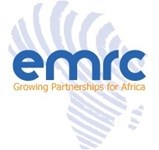






"Our country has so much agricultural potential and we are now focused on developing this vast resource for our country's future," said Jean Chrysostome Vahamwiti Mukesyayira, Minister of Agriculture of the DRC.
"Our aim is to achieve inclusive growth and we have set ourselves goals for 2030, focusing on revitalizing the country's dormant and forgotten agricultural sector," Vahamwiti explained. "Our goal is to invest and attract investment to our vast and fertile lands, which is why we are hosting a pan-African forum ... It is now that we must take the lead on agricultural matters and reverse the course of this sector on which millions of people depend."
The forum - the largest pan-African annual agribusiness gathering to take place in Africa - will focus on Towards Inclusive Growth: A Vision for Africa's Agricultural Transformation. The forum is co-organised by EMRC and the DRC's Ministry of Agriculture (MINAGRI), and in partnership with the UNDP, FPI (Fund for the Promotion of Industry), FAO, Rabobank Foundation, Trust Merchant Bank (TMB), AGCO, and others. It aims to strengthen the agri-food sector in Africa, by encouraging partnerships, exchanging best practices and attracting investment, while providing a platform to discuss and present successful projects and business models.
Achieving business success is key for the country, which is why MINAGRI is focusing on integrating three types of farming: family farms, medium-sized farms and agro-industrial parks. All three can benefit from each other, with the larger farming zones providing technology and resources to smaller outfits and family run farms providing much needed income and food to local communities.
With 80-million hectares of arable land still not used and abundant water resources, the DRC is in the process of modernising abandoned farms and plantations, to enable it to feed the 73-million people in the country and 250-million in the region; these are all significant facts to reinvigorate the agri-food sector. Vahamwiti highlighted that to battle rural poverty and to decrease our massive imports of food we must focus our policies to include all types of farming. "We have the land, the natural wealth, and it has been dormant for the last 40 years. Since 2004 to 2005, our government has decided to make a change, which we are putting in place right now through local, national, regional and international collaborations."
Over 400 delegates from public and private sectors, including international agricultural experts, Government officials, multinationals, farmer and private sector associations, donor organisations, civil society, investors and financiers from Africa, Europe, Asia and the Americas are expected to participate. To encourage the creation of partnerships, the forum will feature One-on-One pre-arranged business meeting sessions (B2B). The B2B meetings will provide a 'live' platform to build South-South and North-South Partnerships.
Since 2008 EMRC has regarded the global food crisis as an opportunity for countries with vast unlocked agricultural potential. This is the time for Africa to cease the opportunity to turn agriculture into a viable solution that could provide millions of people with much needed income.
Supporting the idea of establishing long-term goals in terms of business and employment is the concept behind the EMRC-Rabobank Project Incubator Award, which offers a cash prize of US$15,000 to an African business project that is pushing the boundaries in innovation and sustainability in community agriculture and rural development.
The guiding rationale behind EMRC International's vision is that Africa's private sector must be the key to developing the continent in order to ensure sustainability and long-term growth.